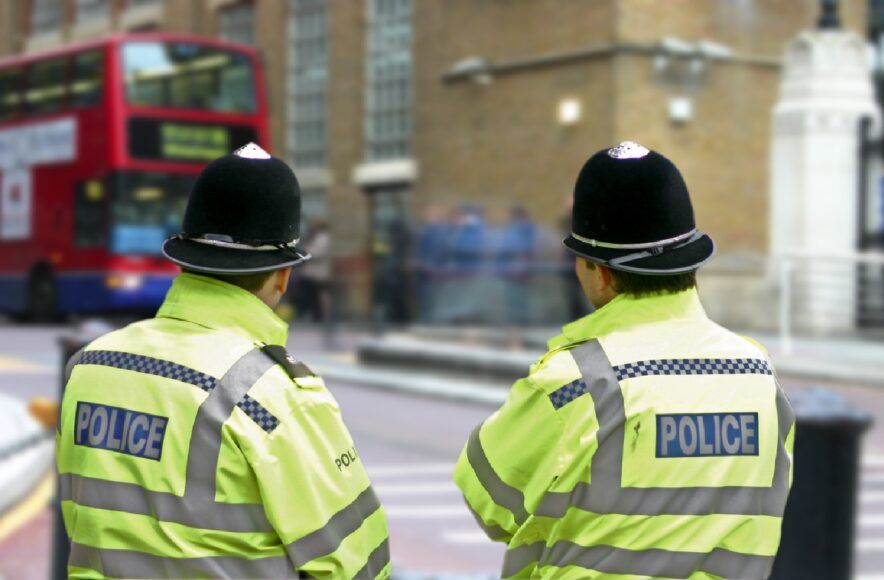Disability hate crime is decreasing. But are disabled victims getting better outcomes?

Assault. Stalking. Criminal damage. Harassment. Hate crimes targeting disabled people continue to be a massive issue in the UK. Nobody wants to be the victim of a hate crime, and none of us benefit from living in a society where hate is allowed to thrive.
The annual release of hate crime stats, produced by the Home Office, shines a light on all types of hate crime, including disability hate crime (DHC). The comprehensive data set draws from police forces across England and Wales, including more than 140,000 instances of hate crime. But while this data can help identify general trends, underreporting remains a significant problem.
Dr Freddie Jobbins, one of our Lived Experience Researchers, breaks down this year’s findings and offers some suggestions for improving the outlook for disabled victims.
What do this year’s hate crime statistics tell us?
Disability hate crimes have fallen by 18%.
Encouragingly, incidents of disability hate crime are down when compared to last year’s release. Last year, police forces in England and Wales recorded 14,285 instances of DHC. The figure for 2023/24 is down to 11,719. It’s worth noting that this only includes crimes that were recorded. A preliminary finding from our summer survey suggests that as many as 70% of disabled victims do not report to the authorities, citing a lack of confidence in police and other bodies.
Just 1% of DHC offences involving violence resulted in a charge. No wonder reporting is so low.
Almost no progress has been made on securing charges against perpetrators of DHC. In the previous year, as few as 1% of violent DHCs ended in a suspect receiving a charge. Incredibly, this figure has not changed in 2023/24. Equally, 2% of DHC public order offences resulted in a charge last year. This figure has also not changed. Charge rates for criminal damage and arson offences have improved from 1% to 2%. However, the stats also reveal that such crimes make up only 4% of the more than 11,000 DHCs recorded last year.
Disabled victims of DHC are much more likely to be stalked and harassed.
Comparing DHC to other types of hate crime reveals that disabled victims are more likely to experience stalking and harassment. It’s the most common offence type for disabled and transgender victims. People with other protected characteristics (race, religion or sexual orientation) are most likely to experience public order offences. Stalking and harassment are both deeply unpleasant and can leave victims feeling terrified, rejected, and worthless.

What can be done to improve outcomes for victims of disability hate crime?
Just because the overall picture seems to be moving in the right direction doesn’t mean there isn’t still so much work to be done.
Outcomes for disabled victims, including the 1% charging rate, remain disproportionately poor. Here are three policy calls United Response is making to demand the government and police do more on this issue:
- So many of the respondents in our DHC survey said that they were unsatisfied with the response of officials. Police must start taking disability hate crime seriously now. Victims can be left unwilling to leave their homes, terrified of accessing public transport, and feeling vulnerable and angry. A lack of care and interest from authorities is hurting the disabled community, and this has to change.
- United Response supports the call made in the Law Commission’s 2021 report to equalise legal protection for all victims of hate crime. Disabled people don’t have the same protections as other groups, and disability hate crime is often treated as a lesser offence by the law. The government needs to create a ‘stirring up’ offence for disability hate crime now.
- The House of Commons Library cites a lack of evidence as a major reason hate crimes aren’t being prosecuted. Yet our preliminary survey findings suggest that more than two thirds of DHCs are witnessed by other people. Witnesses must be encouraged to come forward now. Transport for London’s Active Bystander campaign is a great example of how to do this, but United Response wants to see action on a national level. So many disabled victims could see better outcomes if witnesses just came forward.
Even a single instance of disability hate crime is one too many. We don’t have to continue to live in a society where disabled people are assaulted, harassed, and hurt just because of who they are.
What do this year’s hate crime statistics tell us?
How can I get involved with the research?
From 12th to 19th October, National Hate Crime Awareness Week provides an opportunity to make your voice heard on this issue. Fill in our survey or take part in our focus groups, and help us make next year’s statistics something worth celebrating.
Click here to read the previous entry in the Experts on Disability Hate Crime blog, which includes tips on what to do if you witness a DHC. Further discussion of this issue, including updates on the DHC research project, will feature in the coming months.
Image credits © iStock.
- Dr Freddie Jobbins is a Disability Hate Crime Project Researcher for United Response